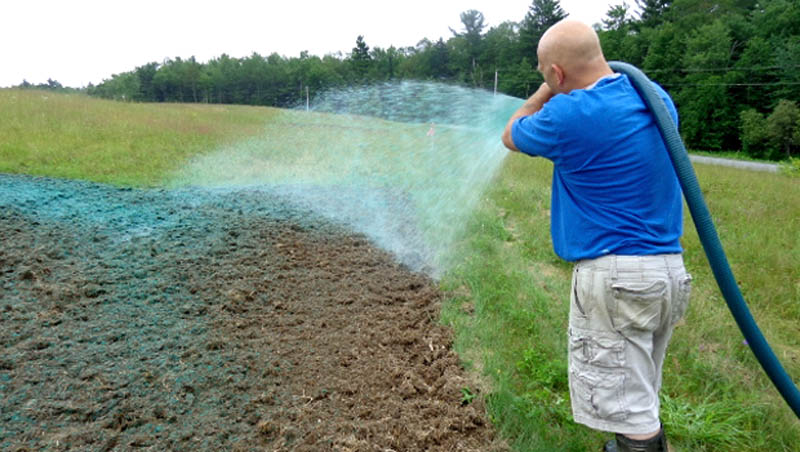OAKLAND — The recent warm, wet weather has created ideal conditions for seeds to be planted for an unusual project at the Oakland transfer station.
But transfer station Manager John Thomas said he’s not sure whether the flowers — and his dreams to transform an old landfill into a butterfly feeding station — will take root.
“There’s a lot of factors here that could kill these flowers,” Thomas said.
Since last year, Thomas has been working with members of the community, and with the Maine Department of Environmental Protection, to get permission to plant wildflowers on top of the former dump, currently capped with a 2-foot-thick layer of clay and topped with topsoil and grass.
Thomas and his supporters plan to provide a flower-laden feeding station for monarch butterflies that will help them on their annual migration to Mexico.
Once he’s demonstrated that flowers can be planted without damaging the clay cap, which prevents rain from filtering through the garbage beneath and dragging harmful elements into the groundwater, he hopes the owners of the 400 landfills in Maine, and countless others across the country, will follow suit.
The DEP has agreed to a trial run, allowing Thomas to plant more than 40 pounds of seeds on a few testing sites that comprise a half-acre of the closed landfill’s 12 acres. Thomas asks that transfer station visitors not walk on the grassy area, which is closed to the public.
Thomas also has worked with the department and the town to erect nesting sites for bluebirds and to delay the annual mowing of grass to benefit the local wildlife. He said he would have liked to plant the seeds earlier in the year.
“You know how it is. One thing happened to another, and now we’re a month behind where we wanted to be,” he said.
This week, Thomas planted 43 species, a mix of annuals, perennials and biannuals chosen for their short root systems, which are less likely to pierce the clay cap.
The varieties Thomas chose, most of which he bought from The Vermont Wildflower Farm, of Charlotte, Vt., include coneflowers, Mexican hats, daisies, black-eyed Susans, brown-eyed Susans and crimson clover.
The cost of the seeds, which can range as high as $35 for one pound, was covered by donations, including $1,000 from the Oakland Lions Club.
Thomas said the ground has been prepared by rototilling three or four truckloads of compost into the test sites.
Once the seeds begin to germinate, which Thomas said should take only a few days in the current weather, they will be involved in a race against time, needing about 10 weeks in order to establish themselves before the first frost of the season.
The frost isn’t the only danger to the flowers. Thomas said he is looking for permission to set up an irrigation system for the test sites, which could make use of a local well or involve setting up a tank.
There is also a danger posed by the methane trapped beneath the clay cap. The cap was designed with PVC pipes that should allow the methane to escape, but it sometimes builds up and seeps out through the clay instead, poisoning the grass above it.
If both grass and flowers die in an area that has been rototilled, there will be nothing to hold the soil there, which could cause erosion. That’s another concern for the department, because the soil is meant to protect the cap.
Thomas said that if he can identify a proven strategy that works and meets state guidelines, he would like to document it for other transfer stations around the state to use as a guide.
For now, though, he is just hoping to see the flowers survive the winter.
“It’s a lot of possibilities,” Thomas said. “That’s why it’s a trial.”
Matt Hongoltz-Hetling — 861-9287
mhhetling@centralmaine.com
Send questions/comments to the editors.



Success. Please wait for the page to reload. If the page does not reload within 5 seconds, please refresh the page.
Enter your email and password to access comments.
Hi, to comment on stories you must . This profile is in addition to your subscription and website login.
Already have a commenting profile? .
Invalid username/password.
Please check your email to confirm and complete your registration.
Only subscribers are eligible to post comments. Please subscribe or login first for digital access. Here’s why.
Use the form below to reset your password. When you've submitted your account email, we will send an email with a reset code.